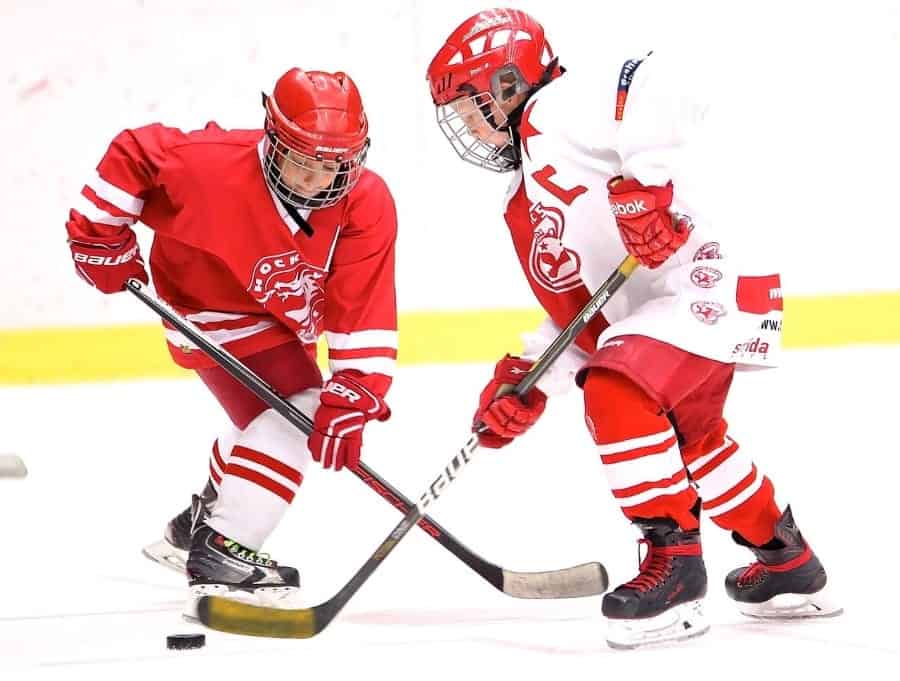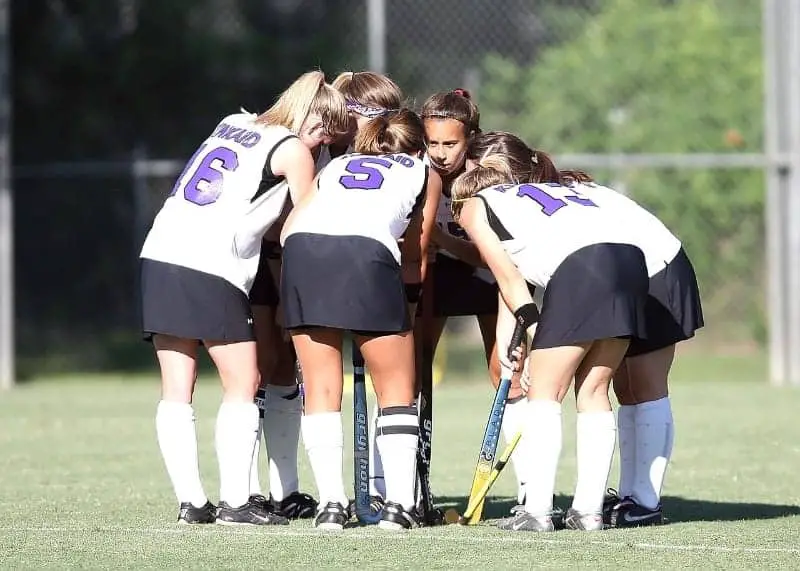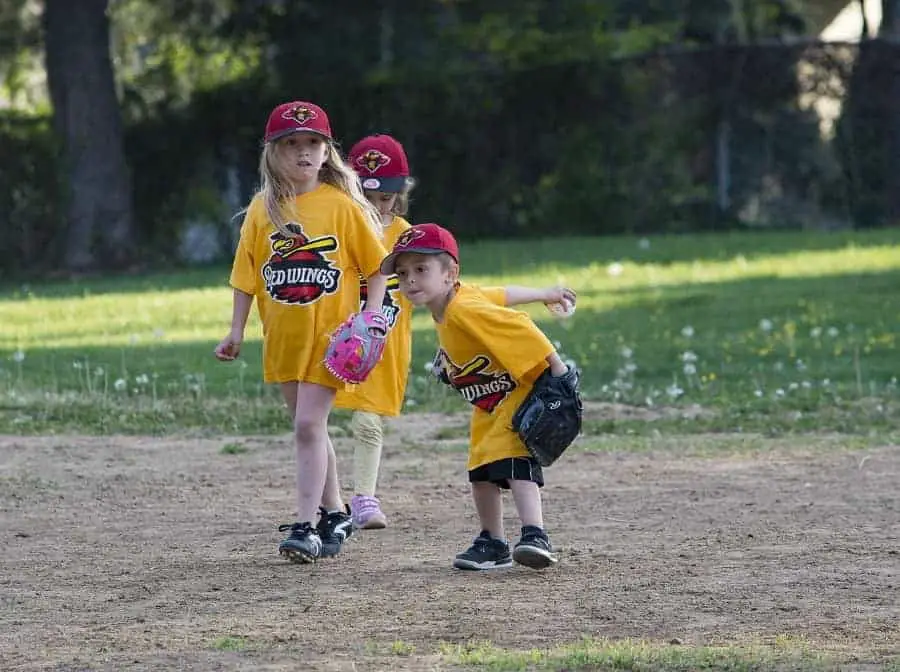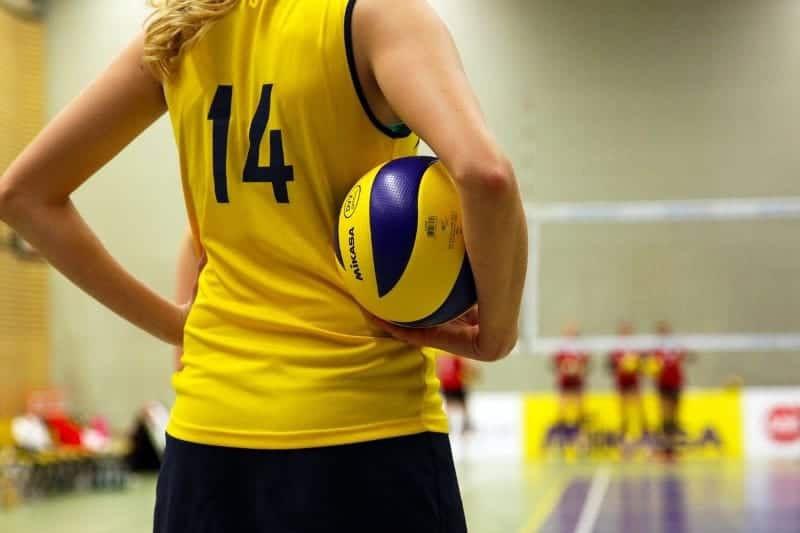In most sports teams I’ve been apart of, both as a player and coach, there has consistently been a team captain or multiple captains. But have these captains always been the best choice of leader? Definitely not. Is it sometimes easier not to appoint a captain at all and avoid the unnecessary hassle or are they worth their weight in gold if you appoint the right one?

Should Coaches Pick Captains? The right hardworking, likeable, dedicated captain can effectively bridge the gap between the coach and team. They will support the coaches message. But often captains appointed by the team themselves are the popular, talented player who doesn’t have leadership qualities, disrupting team dynamics.
This post explores why teams may benefit from appointing a captain, how to choose one, issues with choosing one and how to get the very best from your captain of choice. I have fortunately worked with and played with some inspirational, admirable captains who spurred me on to do my best even without saying much at all. These are the captains you want leading your group.
Why Do You Need A Team Captain?
It’s a good question. Do you really need one? Are they necessary for your team to succeed?
Washington State Football coach Mike Leach doesn’t think so. He became so sick of the whole picking a captain thing and the issues that went along with it, when he had to kick one off the team, that he now simply has a “designated coin toss caller.”
So while Jamal Morrow is Washington State’s exclusive coin-toss captain, he is not their “captain,” just to be clear.
Coaches of college football can have up to 15-20 coaches on the sides, yes 15 is a very true number for some college football teams, so do you really need a captain as well?
The Journal of Sports Sciences doesn’t think so.
“…leadership qualities attributed to the captain as the team’s formal leader are overrated…leadership is spread throughout the team; informal leaders rather than the captain take the lead, both on and off the field”.
But this is just one study. From observing teams from many different sports and countries around the world, captains are still valued as essential for the team’s success.
They are an extension of the coaches, relaying information to the playing group to ensure no message is being lost in translation. They can also strengthen the coaches influence and add to the overall teams success.
Sporting coaches are really busy juggling the bench, assistant coaches, the officials and other unexpected things such as stuffed animals being thrown on the court. Check out what former IU basketball coach Tom Crean was forced to overcome for a laugh (source).
The point is, coaches can’t be everywhere.
There needs to be an element of the athletes “policing themselves.” (source) Can this happen without a designated captain? Yeah. But when the team’s backs are against the wall and everyone feels defeated and unmotivated, who is going to stand up and lead by example? Who feels comfortable to act like a captain if the coach strongly hasn’t elected one for a reason? It puts even the naturally wise and observant athletes in a tough spot.
If you have been a past captain or you’re a coach yourself, would you stand up when somebody needs too if the coach has refused to elect a leader because they “don’t believe in them” or they want “everyone to be leaders?”
It’s an interesting thought to stew on.

Issues with Having Sports Team Captains
We touched on earlier that some coaches, such as Mike Leach, have had their fair share of problems with captains. In his case, multiple misbehaving captains lead to his decision not to have one. And other coaches echo this because:
- They’ve had previous issues with captains which ended up causing more harm than good.
- There is not a natural leader in the group so why force it?
- You as the coach prefer a “leadership group” rather than one individual player
- In the past, you haven’t found any great advantages with having a designated captain so you don’t see the point.
So before you dive into choosing a captain, here are a couple of challenges you could face electing a captain for your team, which you’ll probably want to know.
Competing Priorities
A good captain is supposed to be an extension of the coaching staff, right? The coaches and the captain need to regularly meet, discussing specific goals and how to reach them as a team.
But what happens when you have a captain that “goes rouge?” Refusing or not making time to meet with the coaches, showing a total disregard for what the coaches are trying to achieve because “they’ve got this,” a phrase I have heard all too often.
While coaches can work on nurturing this relationship for the entire team’s benefit, it is often an issue most coaches won’t discover likely until midway through the season.
Related: Coaches Guide to Managing Disrespectful Youth Athletes
Injury
Whilst having a captain out on the sidelines for an extended period due to injury is not the end of the world, you no longer have that physical body “directing the troops” and leading by example.
Yes, they can cheer from the sidelines and motivate the team in the locker room, but nothing quite beats an epic on-field performance to lift their team’s spirits.
Misbehaving
Everyone is capable of doing dumb things. Even coaches, as we highlight in a recent post titled, Why Coaches Get Fired. (LINK).
But it’s pretty low when it’s your leader messing around. What kind of message is this sending to the entire team?

People Change
If you elected a captain during the season before you really knew the player, this relationship can sometimes not work out.
The leader you thought they were during a few preseason games is not the same person you now see midway through the season.
“If you name four captains in preseason, you’ve diminished some of the other guys’ ability to lead. And if (the players) get it wrong you’ve hurt some of your best leaders.”
Former Texas coach Mack Brown
They Are Too Young
An interesting thought you don’t hear spoken about very often is age. When is the right age to elect a captain?
The Ontario Minor Hockey Association states “teams shouldn’t be in a rush to put a ‘C’ on a jersey just because they think it’s necessary”.
If you are coaching a youth team where the kids are so young they don’t really understand what leadership is just yet, it’s probably not a good move.
The players may look at you electing a captain to be their “favorite”, leading to bullying, having the direct opposite effect.

Qualities to Look For In A Great Captain
So for argument sake, you decided to elect a captain or even a “leadership group.” What qualities should you look for?
- Have a good report with the team
This is one of the most important qualities to look for in a captain. This doesn’t mean the most popular athletes, (which we will touch on later), but it needs to be an athlete who the team respects. They won’t value and follow a leader they don’t like.
- “Hold their own” when times get tough
In high-pressure situations both on and off the field, you want a captain who is not fazed by pressure and “goes to water”
- Support your message
A great captain supports your message as coach. Yes, they may challenge you in a constructive way from time to time, and you should welcome this, as you always remain on the same path throughout the season. They don’t “bag you” away from the game and support you when communicating with the team – even socially.
- Always practices hard
Your captain should be the first to arrive and the last to leave. Punctual, prepared and works their butt off every single session, regardless of conditions and unexpected challenges. A great captain consistently sets the right example even when given the opportunity not to.
- “Team first attitude”
Your captain may not be the best of the team, but they always put their team first. An athlete who not only strives to make themselves better, but also the team and the game better. (source)
- Not afraid to be different
You don’t need your captain to “follow the crowd.” You want them to be comfortable standing on their own feet, having their own opinion, even if it goes against the grain of their friends and buddies on the team.
- “The voice of reason” for the other athletes
They see the situation from both the coaches and players perspective and understand what’s best for the whole team (source)
Did you notice I didn’t say the loudest player?
If you compared the greatest captains in different sports, I bet you’ll find that some are vocal, loud and energetic while others prefer a quieter approach, with one-on-one chats and targeted motivational advice.
USA Today sums it up perfectly,
“The ideal situation is when a team’s best players are also the hardest workers, both on and off the field”
[VIDEO] – Cute youth sports player Derek Sisbarro talking about his teammate and what he values about them. This is what you’re aiming for when choose a captain.
How Do You Choose A Team Captain With These Desirable Qualities?
While nobody is perfect, there will almost always be one or two athletes who are natural leaders in your team. Those who stand tall amongst the rest of the group. These are the ones you want. But how do you pick them and make the whole team happy?
Generally, there are four methods here:
- Let the team vote
- Between yourself and the other coaches, you decide on a captain without the teams input
- You have a different captain every week
- Leadership group style captains
Let The Team Vote
Allowing the team to have a voice in selecting who is going to lead them is a powerful tool. But it can also be fought with danger.
“If you’re not careful, voting for captains is a popularity contest,”
Penn State coach – James Franklin
Popular athletes often win peer voting because they are “cool”, “funny”, “talented” or are my “friend” etc, but are simply not born leaders ready to guide a team. They are not ready to lead by example both physically and mentally when called upon and don’t possess the natural observant capabilities of a captain.
This is not to say you don’t want them on your team, you just don’t want them to lead.
So what do you do when the team has voted a clear “favorite” and you totally disagree? In the end, it’s your call to make a decision to benefit the whole team, that’s why you’re the head coach. The athletes don’t need to know the outcome of the votes, though they will probably find out anyway.
If you do go down this route of a “team vote”, talk to the team first and don’t make them rush their vote.
Chat to them about it not being a popularity contest. Show them video on what a good leader looks like and talk through what they think a good leader should do. Then give them a day or two to hand in their votes and make it confidential. Do this just before the season so the athletes get a chance to get to know each other.
“So that’s why bad apples that can ball typically get voted captains and that drives head coaches crazy,”
Former All-America offensive lineman Aaron Taylor

Coaches Only
Using this strategy, you are obviously able to pick the captain you want to be an extension of you. There is no time wasted in voting and you can get on with things.
Using the “fresh eyes” of assistant coaches can be hugely insightful, seeing parts of a certain athlete’s personality you may have simply grown used to. Be open to new opinions and welcome advice from different people, especially if you have been coaching the same group of athletes for consecutive seasons.
Have Alternating Captains
The third method is to have a rotating captain schedule. Each week a different athlete gets the opportunity to captain and lead their team.
Former LSU Football coach Paul Dietzel did exactly this when he coached college football back in the ’50s and ’60s. Coaches who go down this route say they avoid the issues we spoke to earlier and it gives all the athletes a moment to shine. I guess you never know you have the ability to lead unless given the opportunity?
Leadership Group
How many captains does it take to successfully lead a team and take care of all of the other challenges which naturally present themselves when coaching sports?
While there is no magic number, one interesting study looked at professional men and women’s soccer teams in Spain where they assigned three or four people to different skills such as;
- Task leader
- Social leader
- External leaders
This method of assigning different people within the leadership group to specific tasks was very effective in optimizing their teams success.
Who knows, maybe this structures approach can work for your team too?

Getting The Most Out of Your Captain
So it’s at this point you’ve decided to choose a captain. You have counted the votes and you’ve got a winner. But how do you give them the tools to truly shine and lead the playing group?
Know Their Responsibilities
Like any new job or promotion at work, people want to know what they need to do. They need to know exactly what the coaching staff requires at practices, games and off the court.
Don’t assume just because a player may be a “natural leader” they understand their role.
Show them film of great leaders of your sport, recommend books on leadership and be very specific on their role. Of course, captains need some wriggle room for non-preplanned and “spur of the moment” instincts, but there needs to be an element of routine and structure.
Another thought in terms of responsibilities is to give your captain/s a specific role. Give them a job like setting up a buddy system for younger players or, being responsible for organizing off-field activities, encourage other team leaders to be involved in player dynamics.
Conduct Regular Meetings
How often you conduct these meetings and the manner in which they occur is up to you, but ensure they are a permanent part of the coaching routine. Invite them to chat before practice, be real and honest, but remind them that confidentiality is critical. What we speak about can’t be shared with the rest of the playing group.
Interestingly, a research study published in Sports looking at a captain of a losing team stated, “
“The captain needs to have good support networks, from a variety of sources, to cope and minimise the impact on personal performance”.
This is an interesting thought I’m sure most coaches wouldn’t even think to consider. You are that key source!
Open Door Policy
If the captain has an issue or concern with one of the players, you need to know about it. They are seeing the game from a different perspective and they need to feel comfortable telling you what’s going on without feeling fearful or judged. As the coach, you need to make it clear and comfortable for the captain to come to you first before “addressing the problem themselves.”
[VIDEO] – Stamford University Wrestling Coach Jason Borrelli on important tips to choosing the best captains.
Summary: Should Coaches Pick Captains?
It’s ultimately the coach’s decision to deem if a captain is necessary for their team’s success. But in my experience both as a player, coach and watching a lot of sports, captains are the backbone to holding a team together during a team’s triumph and failures.
They are the player, respected by the team who they know will always do their best putting the team first. They are the person everyone on the team is striving to be like. They are not a fictional character or a sports celebrity on TV, they are there every practice sweating it out like everyone else.
What do you think about choosing a captain? Are they necessary?
What qualities are on your “must-have” list?
Cheers,
Emma
